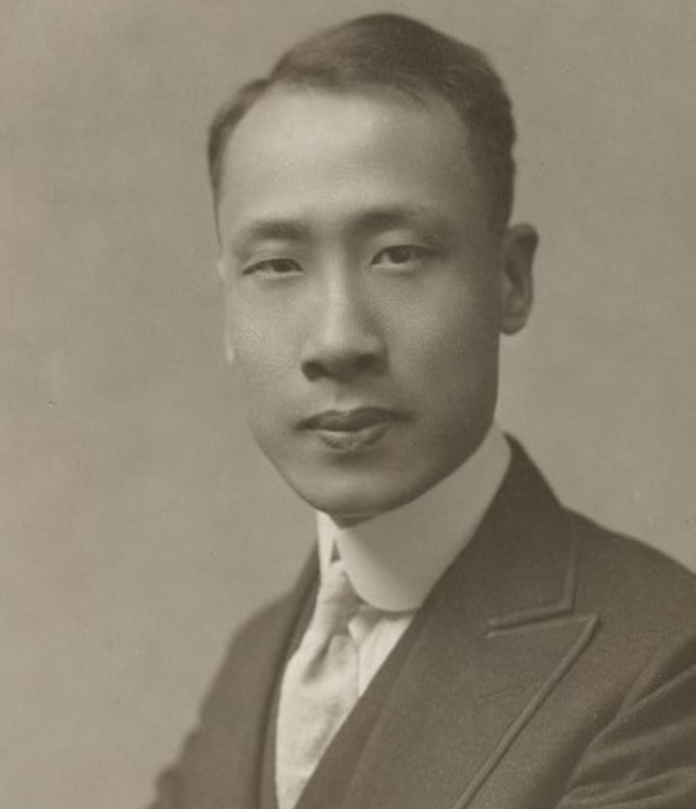
Peng Chun Chang, a Confucian influence
Reading Time: 3 minutes.
Charles Taylor on the UDHR
As universal as we would like it to be, the Declaration of Human Rights is actually not, I read in the essay The Politics of Recognition by Canadian philosopher Charles Taylor (1931). In his essay, Taylor emphasizes that the liberal emphasis on universal human rights – while essential – is still insufficient because it often ignores the unique identities and values of different cultural groups. There are also quite a few philosophers in the Far East who criticize the UDHR. In their view, the emphasis is too much on the rights of the individual and too little on those of the community of which roughly every person is a part.
The influence of Peng Chun Chang
Peng Chun Chang, (张彭春) (1892-1957) was a man of all trades: he was an academic, philosopher, dramatist, human rights activist and diplomat. A citizen of the world, he was born in China and died in New Jersey, at his home. Perhaps a highlight of his career was the time he was vice chairman of the commission that prepared and compiled the UDHR.
Rooted in Western values, the UDHR, thanks to the contribution of Peng Chun Chang, is still tempered by reflections of Eastern culture, albeit perhaps still inadequate. Indeed, the scholar Chang was influenced by Confucianism, a philosophical and ethical movement from ancient China based on the teachings of Confucius (551-479 B.C.). It is not a religion, but a system of moral, social and political principles that strives for a harmonious society. The UDHR mainly emphasizes the inherent rights and freedoms of human beings who by nature should enjoy them. Confucianism, on the other hand, emphasizes social harmony, duty and hierarchy.
“In the 18th century, when progressive ideas regarding human rights were first mooted in Europe, translations of Chinese philosophers were well known to and inspired thinkers such as Voltaire, Quesnay and Diderot in their humanist revolt against feudalism.”
– Peng Chun Chang at the United Nations General Assembly in 1948. Source: Wikipedia.org.
Rights are linked to responsibility within a well-ordered society. Peng Chun Chang brought in this inspiration during the design process and bridged numerous cultural barriers. Confucius’ teachings on benevolence, morality and governance thus influenced the UDHR, albeit subtly and at the last minute.
Criticism of the UDHR
The foresight of the remarkable diplomat has not prevented voices from rising and things from happening in the Far East today that starkly question the universal ambition of the declaration. Not only in Singapore, but also in China or Korea, I read from Charles Taylor.
The UDHR may be a target, which I personally do see as a focal point, but not a moral standard with which to knock others around the world. Within the West, the UDHR remains the standard for those, like me, who still believe in international law, despite the many examples of flawed application. However, it is not something that can be enforced by force anywhere. We can only try to convince others and grant them what we desire for ourselves.
Want to read more?
The essay The Politics of Recognition by Charles Taylor. Accessed 14/9/2024.
The Universal Declaration of Human Rights on the Amnesty website. Accessed 14/9/2024.
Dutch article on Confucius, the founder of Confusianism. Accessed 14/9/2024.
Link to webpage on members of the Human Rights Commission. Accessed 14/9/2024.
Alle auteurs
- Olivier Lichtenberg
- ADHD
- Advice from the doctor
- African poetry
- AIDS activism and gay emancipation
- Bibliography of Chris
- Bibliography of Olivier
- Biography of Chris
- Biography of Olivier
- Biography of Patrick
- Blogs
- Chris' Stage
- Columns
- Covid
- Dirk van Babylon Newsletter
- Double calling
- Essays
- Fragile light
- Hanna's Mind Wanderings
- Incapacity for work
- Late Pasquino's
- LEIF doctor
- Liechtensteiner
- Medical newsletter
- Memoirs of a general practitioner
- Miguel Molinos
- Moctines
- Musings
- Myriad
- Practice in Erembodegem
- Resignation
- Sleep problems
- Sonnets
- Sprawl Month
- Substance abuse and addiction
- Travel
- Uncategorized
- Vi to
- Vögels
- Voluntary euthanasia
- Weltschmerz
- Wormwood or The dose makes the poison
- Patrick Bernauw
- ADHD
- Advice from the doctor
- African poetry
- AIDS activism and gay emancipation
- Bibliography of Chris
- Bibliography of Olivier
- Biography of Chris
- Biography of Olivier
- Biography of Patrick
- Blogs
- Chris' Stage
- Columns
- Covid
- Dirk van Babylon Newsletter
- Double calling
- Essays
- Fragile light
- Hanna's Mind Wanderings
- Incapacity for work
- Late Pasquino's
- LEIF doctor
- Liechtensteiner
- Medical newsletter
- Memoirs of a general practitioner
- Miguel Molinos
- Moctines
- Musings
- Myriad
- Practice in Erembodegem
- Resignation
- Sleep problems
- Sonnets
- Sprawl Month
- Substance abuse and addiction
- Travel
- Uncategorized
- Vi to
- Vögels
- Voluntary euthanasia
- Weltschmerz
- Wormwood or The dose makes the poison
Other works by our writers
- November 2025 (1)
- August 2025 (1)
- July 2025 (2)
- March 2025 (3)
- December 2024 (10)
- November 2024 (6)
- October 2024 (3)
- February 2021 (3)
- January 2021 (5)
No comments have been posted yet!